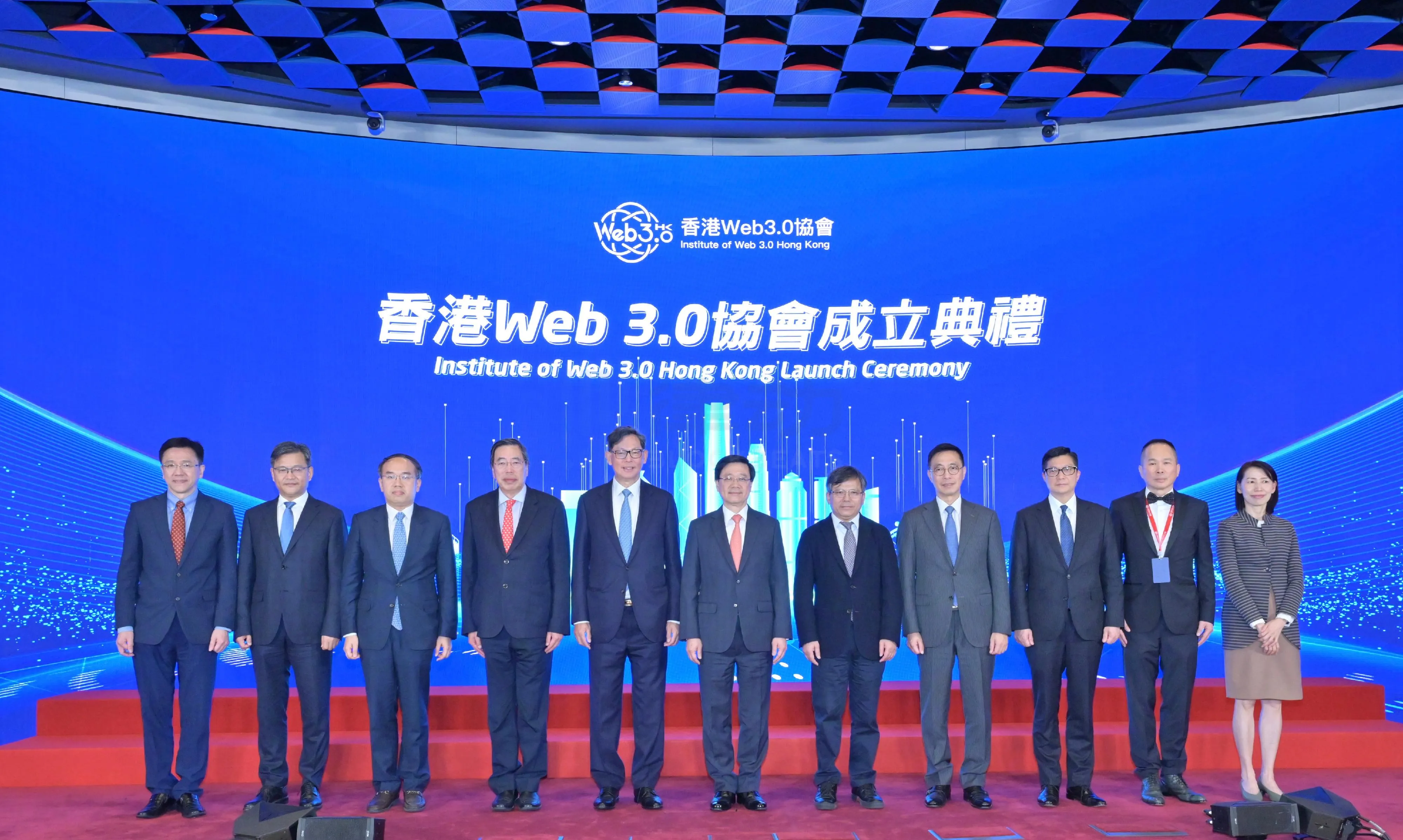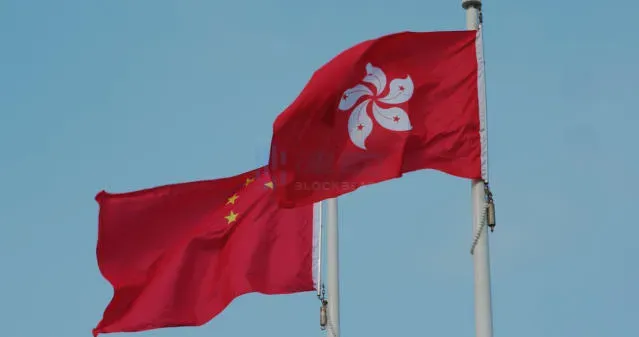Hong Kong’s new regulations on virtual assets have been implemented, opening up the golden age of Web3.
Hong Kong's new regulations on virtual assets have opened the golden age of Web3.This year’s Children’s Day may be a milestone for crypto.
On June 1st, the Hong Kong Virtual Asset Trading Guidelines for Virtual Asset Trading Platform Operators officially took effect, and the virtual asset trading platform operator license has been open for application, marking a major progress in Hong Kong’s efforts to build a global virtual asset center.
This is the first time in the history of the crypto industry that it has received good news in mainland China.
In the past, the Chinese market was also a force to be reckoned with in the crypto industry. Between 2014 and 2016, a large number of heavyweight players, such as OKCoin, Huobi, BitMEX, and Bitfinex, were born in mainland China and Hong Kong, greatly monopolizing the industry’s liquidity and leaving countless prosperity and innovation in its wild growth.
- Quick look at Blockingradigm’s Q1 2023 investment landscape
- A16z: Decoding the Key Elements of Decentralization in Web3 Protocols, Driving Decentralized Tools
- Quick overview of the four potential GameFi protocols that may experience explosive growth: Treasure, MapleStory Universe, Questify, and Pixels.
On September 4, 2017, the central bank announced that ICOs were classified as illegal financial activities, and any token financing activities were explicitly prohibited. Trading platforms were shut down, and the market sentiment collapsed. In a round of more than 50% crash, the Eastern crypto embarked on a journey of going overseas for several years, and today’s industry leader Binance has gradually risen since then in overseas markets.
In the following years, mainland China continued to tighten its crypto regulation. On May 21, 2021, the State Council Financial Meeting released a signal to “crack down on Bitcoin mining and trading activities”, and local governments began to shut down mines and explicitly ban mining. The China computing power, which once accounted for 75% of the entire Bitcoin network, disappeared from the map. In November of that year, Bitcoin hit a historical high of $69,000, and the Crypto industry had no Eastern voice in the entire market frenzy.
When STEPN made people exclaim “the pride of the Chinese”, a group of crypto practitioners became “digital nomads” in Dali during the epidemic; when FTX, which originated in Hong Kong, returned to North America, it abruptly ended at its peak; when DCG, which was hailed as the crypto Berkshire Hathaway, collapsed in 2022, SEC came out strongly on Staking and stablecoin regulation in succession. In the twists and turns, the gears of history have quietly turned.
On October 31, 2022, the Hong Kong government released the “Policy Statement on the Development of Virtual Assets in Hong Kong”, announcing its determination to compete for the global virtual asset center, and in the following months, the policy has surged all the way, with virtual asset ETF approved for listing, new licenses issued, trading platforms holding licenses and going to work, and even plans to open virtual asset trading to retail investors, with such rapid progress that it is overwhelming. At the Hong Kong Web3.0 Association’s inaugural ceremony on April 11th this year, a group of senior officials, including Hong Kong Chief Executive Li Jiachao, Hong Kong Legislative Council Chairman Leung Chun-ying, and Hong Kong Security Bureau Chief Deng Bingqiang, appeared on stage, confirming the unprecedented strength of this policy once again.
Behind the strong support is the competition for talent and capital. However, the increasingly stringent regulations on Crypto by the US regulatory authorities have given Hong Kong an opportunity to take advantage of the situation, creating a policy pattern in the current encrypted world of “the West is not as bright as the East”. The policy itself does not equal innovation, but policy is undoubtedly the best soil for industry innovation. In this world that is increasingly divided in the wave of de-globalization, an open and inclusive policy environment is invaluable.
Key Points of the New Policy
On May 24th, the Hong Kong Securities and Futures Commission released “Consultation Conclusions on Proposed Regulatory Requirements for Licensed Virtual Asset Trading Platform Operators”. During the consultation period, 152 comments were received, which attracted widespread attention, covering opinions from industry and professional organizations, professional and consulting companies, market participants, licensed corporations, individuals and other stakeholders. Most respondents welcomed the proposed regulations, but some also raised issues that need to be clarified. After considering a wide range of opinions and suggestions, the SFC has modified and clarified some of the proposed regulations.
The vast majority of respondents support the SFC’s proposal to allow licensed trading platforms to provide services to retail investors. The SFC will take a series of appropriate measures to protect the rights and interests of these investors, including ensuring appropriateness, good corporate governance, strengthening token due diligence, and related disclosures.
The relevant guidelines stipulate a number of standards and regulations applicable to licensed trading platforms, including secure custody of assets, segregation of client assets, avoidance of conflicts of interest, and network security. The SFC will provide additional guidance on the new regulatory requirements, other implementation details, and transition arrangements. The SFC welcomes virtual asset trading platform operators who are ready to comply with its standards to apply for a license. Operators who do not intend to apply for a license should take steps to end their business in Hong Kong in an orderly manner. As for the existing virtual asset trading platforms, Tsai Chung-hui said that virtual asset trading platforms that are not operating in Hong Kong before next Thursday cannot continue to operate; as for platforms that were already operating in Hong Kong before that day, there will be a transition period and they must apply to the SFC for a license within nine months.
In the appendix of this summary, the long-awaited regulation “Guidelines for Virtual Asset Trading Platform Operators” officially came into effect today. Here, BlockBeats has compiled some of the key points of the new regulations to provide readers with a clearer understanding.
License
The classification of virtual assets may evolve over time, and the classification of a certain virtual asset may change from a non-security token to a security token (and vice versa). In order to comply with the issuing system regulations and ensure the continued operation of the business, virtual asset trading platforms are cautious to apply for approval under both the “Securities and Futures Regulations” and the “Anti-Money Laundering Regulations” under the existing system. The CSRC will adopt a simplified application process so that dual-license applications only need to submit a comprehensive application form.
In order to ensure the protection of retail investors, a licensed virtual asset trading platform must follow a series of measures covering business relationships, governance, disclosure, and token review before providing services to retail investors. Retail investors need to understand the characteristics and risks of virtual assets. The CSRC will continue to cooperate with investors and the Wealth Management Education Committee to carry out relevant education work.
At the same time, the CSRC has considered relaxing specific regulations on establishing business relationships with retail clients, recognizing that platform operators should comprehensively evaluate investors’ understanding of the nature and risks of virtual assets, and revise the “Virtual Asset Trading Platform Guidelines” accordingly. The CSRC will release further guidelines in the form of frequently asked questions (such as how to evaluate a client’s risk appetite for virtual assets and risk-taking ability).
A licensed virtual asset trading platform should only return virtual assets in appropriate circumstances and when there is no suspicion of money laundering/terrorist financing activities, and after considering the due diligence of the counterparty of the virtual asset transfer and screening of virtual asset transactions and related wallet addresses. In addition, returned virtual assets should be returned to the account of the remittance institution, not the account of the remitter.
A licensed virtual asset trading platform should take reasonable measures to reduce and manage money laundering/terrorist financing risks associated with the transfer of virtual assets to and from non-custodial wallets based on risk sensitivity. Ownership or control of non-custodial wallets may change over time, and licensed virtual asset trading platforms should regularly and based on risk sensitivity determine the ownership or control of such non-custodial wallets.
When a licensed virtual asset trading platform provides services to virtual asset service providers or financial institutions located outside Hong Kong and acting for their respective clients, the provisions on cross-boundary agency relationships shall apply to the platform. The SFC has added paragraph 12.6.5 to the Guideline on Anti-Money Laundering and Counter-Financing of Terrorism for Licensed Corporations and Associated Entities of Licensed Corporations Providing Virtual Asset Services to clarify that a licensed virtual asset trading platform should continuously monitor virtual asset trading and related wallet addresses.
Transfer
The SFC considers that promptly providing the required data after a virtual asset transfer is acceptable as a temporary measure until January 1, 2024, after taking into account the implementation of transfer rules in other jurisdictions. Licensed virtual asset trading platforms should comply with other transfer rules and relevant requirements and safely provide the required data from June 1, 2023, while taking temporary measures. In addition, the use of non-custodial wallets by some customers for virtual asset transfers may pose a higher risk of money laundering and terrorist financing, so the SFC has set out rules for managing non-custodial wallet transfers in paragraph 12.14.
Transfer rules are a key measure for virtual asset service providers and financial institutions in combating money laundering/terrorist financing, as the rules provide the basic information needed for conducting sanction screening, transaction monitoring, and other risk-mitigation measures. They also help prevent the processing of virtual asset transfers by wrongdoers and designated persons and detect such transfers when they occur.
The Financial Action Task Force (FATF) reiterates that jurisdictions need to implement the transfer rules as soon as possible, as the “sunrise problem” cannot be addressed until all virtual asset service providers and financial institutions operating in major jurisdictions comply with the transfer rules.
Other major jurisdictions such as the United States, Singapore, the United Kingdom, and Europe have already implemented or are in the process of implementing transfer rules. Delaying the implementation of transfer rules in Hong Kong will impact the competitiveness of virtual asset trading platforms licensed by us, as virtual asset service providers and financial institutions operating in other major jurisdictions may be unable or unwilling to transact with them due to risk management concerns.
However, it may take time for the development system to submit the required information to the receiving institution for the purpose of facilitating immediate payment. Even though licensed virtual asset trading platforms are aware of the transfer rules, special organizations have been advocating compliance with the transfer rules over the past few years. Considering the positive and rapid development of technology solutions and transfer rule networks in recent years, the concern of immediately submitting the information will be resolved over time as it becomes easier to exchange the required information between institutions. In addition, more and more virtual asset service providers and financial institutions operating overseas will be subject to transfer rules.
The anti-money laundering regulations will cover centralized virtual asset trading platforms, so platforms that only provide virtual asset services (such as off-site virtual asset trading and virtual asset brokerage activities) without automated trading systems and additional custody services will not be covered by the anti-money laundering regulations.
Tokens
Before incorporating each token for trading, licensed virtual asset trading platforms should also conduct due diligence on the tokens. Therefore, it is not appropriate to exempt tokens that have already been incorporated by other licensed virtual asset trading platforms from review. The SFC only requires platform operators to consider the regulatory status of virtual assets in Hong Kong, and does not require platform operators to consider the regulatory status of tokens in different jurisdictions where they provide trading services.
The proposal to require non-securities tokens to have a minimum of 12 months of historical records is established to address the difficulties that platform operators may encounter during the review period. Although the 12-month rule may not prevent some tokens from experiencing recent collapses, its purpose is to reduce fraud risks that are difficult to detect and to reduce market promotion before the initial sale of tokens.
To ensure the protection of retail investors, licensed virtual asset trading platforms must follow a series of measures covering business relationships, governance, disclosure, and token review before providing services to retail investors. Retail investors need to understand the characteristics and risks of virtual assets, and the SFC will continue to work with investors and the Financial Education Committee to carry out relevant education work.
The SFC has considered proposals to relax specific regulations on establishing business relationships with retail clients. The SFC believes that platform operators should comprehensively evaluate investors’ understanding of the nature and risk of virtual assets and make corresponding revisions to the “Guidelines for Virtual Asset Trading Platforms”. The SFC will issue further guidance in the form of frequently asked questions (such as how to evaluate a client’s risk appetite for virtual assets and risk-taking ability).
Conflicts of interest between committee members and platform operators are also taken seriously. As such, platform operators should establish internal policies and procedures to properly handle these conflicts. Licensed virtual asset trading platforms must conduct due diligence before incorporating each virtual asset. The China Securities Regulatory Commission has adjusted the information disclosure responsibilities in the “Virtual Asset Trading Platform Guidelines,” stipulating that platform operators should take all reasonable measures to ensure that the disclosed specific product information is not false, biased, misleading, or deceptive.
What Does the New Regulation Mean for the Cryptocurrency Industry?
The competition between Hong Kong and Singapore began before Web3.0 and has undergone many changes. In terms of area and population, Singapore is comparable to Hong Kong, China, and they are both economically developed countries and regions. Their rise trajectories are highly similar, and their development situations are very close. Shopping paradise, multicultural inclusion, finance, trade, and shipping are highly developed in both places, so they are known as “the pearls of Asia.”
As a highly open and outward-looking economy, Hong Kong has undergone three industrial transformations in the past few decades. Although the service industry accounts for a high proportion of Hong Kong’s economy, it is mainly concentrated in traditional fields such as finance, commerce, shipping and logistics, and tourism and exhibitions. However, this traditional and single industrial structure has become difficult to meet the needs of Hong Kong’s development and has become what some experts call Hong Kong’s “resource curse.”
In order to optimize the industrial structure and accelerate industrial upgrading, Hong Kong faces huge challenges. Although it has tried to redevelop the manufacturing industry, high-end manufacturing industries with high technology content have almost no development space in Hong Kong due to high physical costs such as land and manpower. In the global Internet entrepreneurship wave in the past twenty years, Hong Kong has accommodated a large number of technology companies’ mobility needs, but their business focus is often not in Hong Kong, and Hong Kong has not enjoyed the dividends brought by Internet technology innovation.
At the same time, some financial institutions and even headhunting companies in Hong Kong have moved to Singapore and taken away a large number of Hong Kong talents, especially financial professionals engaged in asset management. Singapore’s rise has put pressure on other major cities in Asia, especially Hong Kong, the former Asian center. This has led to a recent outflow of local labor and capital from Hong Kong, and its international center status has been impacted. According to the ranking of the Global Financial Centers Index (GFCI), Singapore has surpassed Hong Kong and risen to third place in the world.
Therefore, developing financial technology innovation industries such as Web3.0 and embracing a broader digital space has become a very good choice for Hong Kong. The battle between Singapore and Hong Kong is also gradually expanding into the blockchain and Web3.0 fields.
Web3.0 may become a new battleground for Hong Kong and Singapore
According to the “2022 Global Blockchain Talent Report-Web3.0 Direction” jointly released by OKX and LinkedIn, Singapore’s blockchain talent has grown rapidly and has become one of the top five countries in the world for blockchain talent as of June 2022. In September 2022, almost all global activities in Asia were held in Singapore, leading to a surge in accommodation costs in Singapore. However, Hong Kong is not sitting idly by and is working hard to regain its status as the financial center of Asia, with Web3.0 becoming an important direction for their efforts.
Although Web3.0 is still in its infancy, the competition between Singapore and Hong Kong in this field is intensifying. According to Yu Jingning, executive director of the Metaverse Industry Committee of the China Mobile Communications Federation and honorary chairman of the Hong Kong Blockchain Association, the competition between Singapore and Hong Kong in the Web3.0 field can be traced back to their emphasis on financial technology and innovation. Both places are international financial centers with strong financial and technological infrastructure, and have good conditions to promote the development of Web3.0.
In November 2022, Hong Kong Fintech Week and Singapore Fintech Week were held simultaneously, pushing this competition to a climax. Hong Kong and Singapore are competing for talent, funds, and companies, and both places are striving to become “cryptocurrency financial centers” or “global Web3.0 centers.”
On April 11 of this year, the Hong Kong Web 3.0 Association was established, and Chief Executive Carrie Lam gave a speech at the opening ceremony: “In order to seize the opportunity of Web3.0, a new ‘Financial Budget’ was announced in Hong Kong. The plan allocated HKD 50 million to Cyberport to accelerate the development of Hong Kong’s Web3.0 ecosystem, especially to promote cross-industry business cooperation. Cyberport has also established the “Cyberport Web3.0 Base” at the beginning of this year to better mobilize global Web3.0 startups and talents.”
Li Jiachao believes that the development of Web3.0 is at a golden starting point, and this disruptive technology can change many existing business operation models while creating more opportunities. Faced with the development trend of Web3.0, Hong Kong must dare to become the leader of this innovation wave.

A series of actions, such as the allocation of HKD 50 million in government funding, the establishment of the Cyberport Web3.0 Base, the establishment of the Hong Kong Web3.0 Association, and the promulgation of new regulations on virtual assets, show that the Hong Kong SAR government is full of expectations for the development of Web3.0 in Hong Kong. It hopes to build a thriving Web3.0 ecosystem and even lead the industry in technological breakthroughs, model innovation, and application innovation.
We must admit that Singapore has some first-mover advantages in the development of Web3.0, but Hong Kong, China is also striving to catch up. The road to innovation and change has never been smooth sailing, but what we can foresee is that Chinese people’s position in the encryption industry can expand our footprint to the ASEAN market, the Asia-Pacific market, and even the European and American markets, with Hong Kong as the starting point, and gain more voice in the global market.
How Industry Insiders View Hong Kong’s New Regulations
During the Hong Kong Carnival, BlockBeats conducted an interview with Waterdrip Capital CEO Dashan. He believes that for various reasons, Hong Kong has suffered severe capital and talent outflows in the past few years. It urgently needs a new starting point to revitalize the economy. Therefore, the Chief Executive of Hong Kong has also attended many Web3.0 events intensively during these days, which has given everyone great confidence in practical actions.
So as practitioners, especially as mainland practitioners, everyone doesn’t have much demand for “support”. As long as they are not suppressed, they can do things with great confidence. Moreover, now the entire Hong Kong government has shown a very positive attitude of support, and everyone is more willing to come forward. When project parties, institutions, money, and traditional institutions such as family offices see such a good environment, everything is moving in a positive direction.
Regarding regulation, Da Shan believes that Singapore is actually stricter than Hong Kong. “Because after all, Hong Kong has already approved three compliant exchanges, but Singapore may not have any yet, they are all pure virtual currency trading platforms. In the short term, Hong Kong may not approve the fourth, but at least this gives everyone hope, at least there is a possibility of compliance. Therefore, the trading platforms that went to Dubai, Singapore, Malaysia and other small countries in those years are now coming to Hong Kong for observation.” In his view, Hong Kong’s compliance targets other business aspects, including asset management, which have clear protections, because the compliant side is regulation, and the other side is protection.
Reference link:
《Consultation Conclusions on the Proposed Regulatory Framework for Virtual Asset Trading Platforms》
We will continue to update Blocking; if you have any questions or suggestions, please contact us!
Was this article helpful?
93 out of 132 found this helpful
Related articles
- How has the NFT lending protocol Blend, under Blur, performed in the first month?
- Analysis of the entire process of the Twitter celebrity Ben’s “fraud incident”: Do investors really have “too much money and too little sense”?
- Overview of Solana ecosystem and user data
- Variant Fund partner discusses asset-first or idea-first approach to Web3 social networks
- With a valuation of nearly $100 million and 120,000 Steam wishlists, can Abyss World, the flagship blockchain game on Sui, make a name for itself?
- Modular account abstraction overview: what is it? What are the developments?
- Derivative DEX Battle: Kwenta and Level Surpass GMX in Weekly Trading Volume








